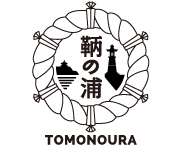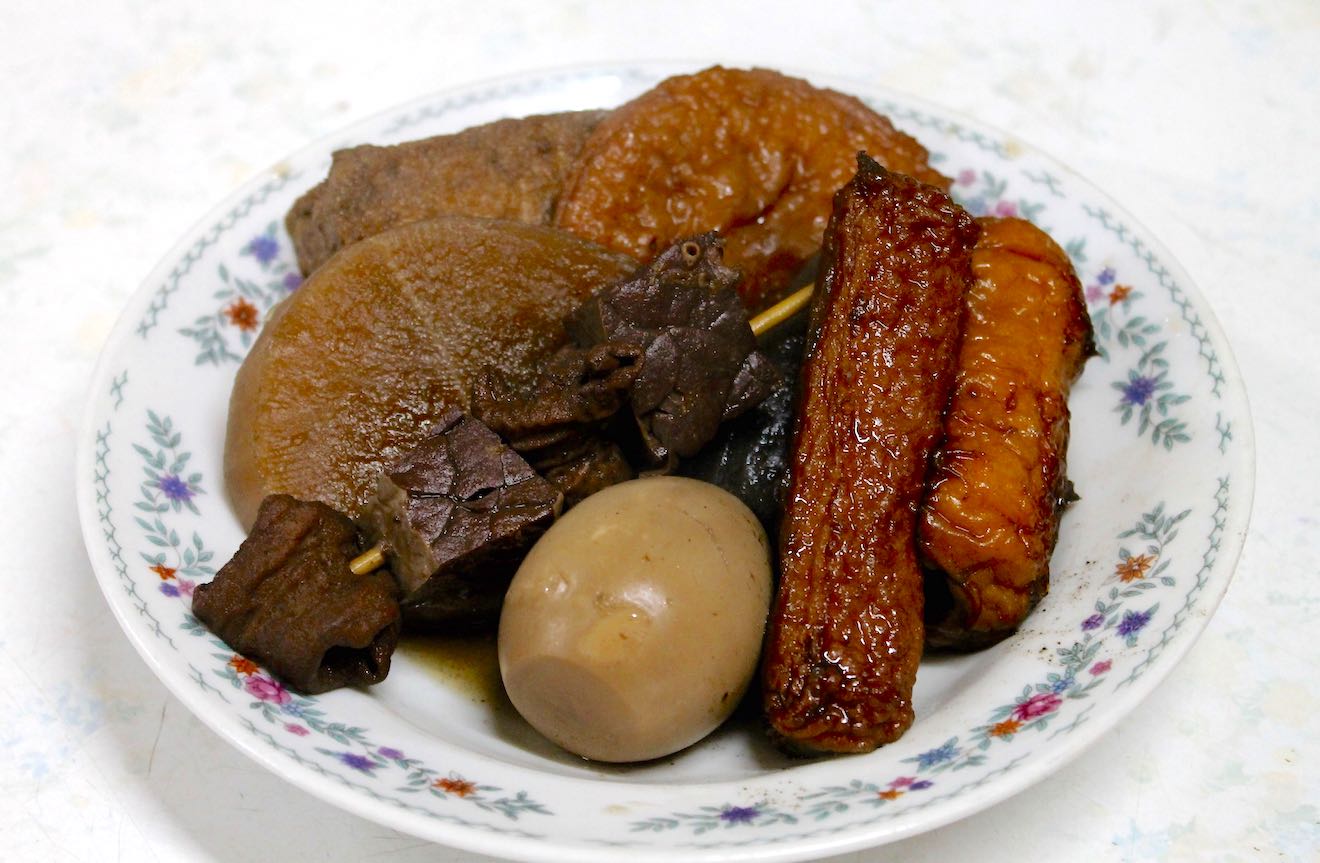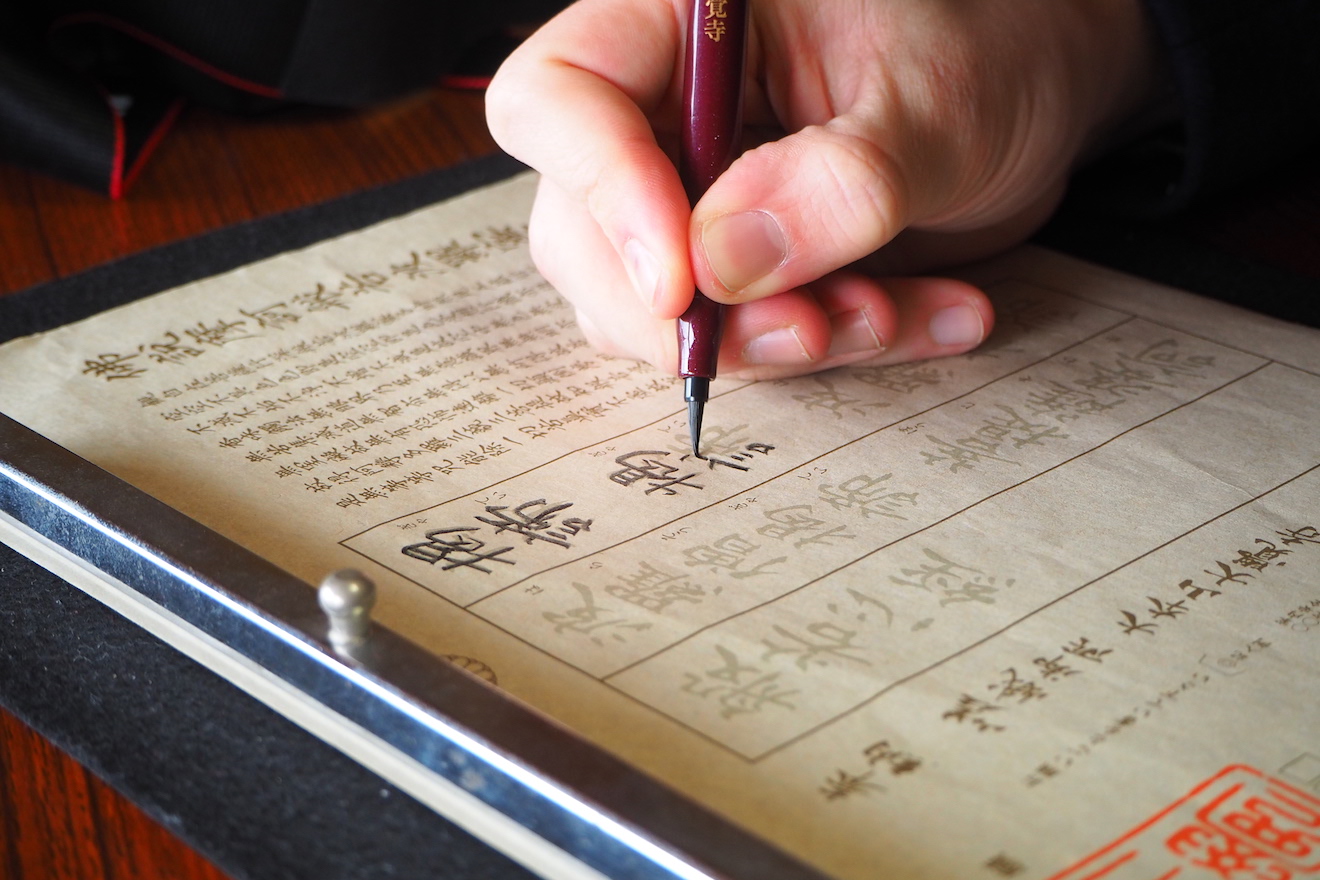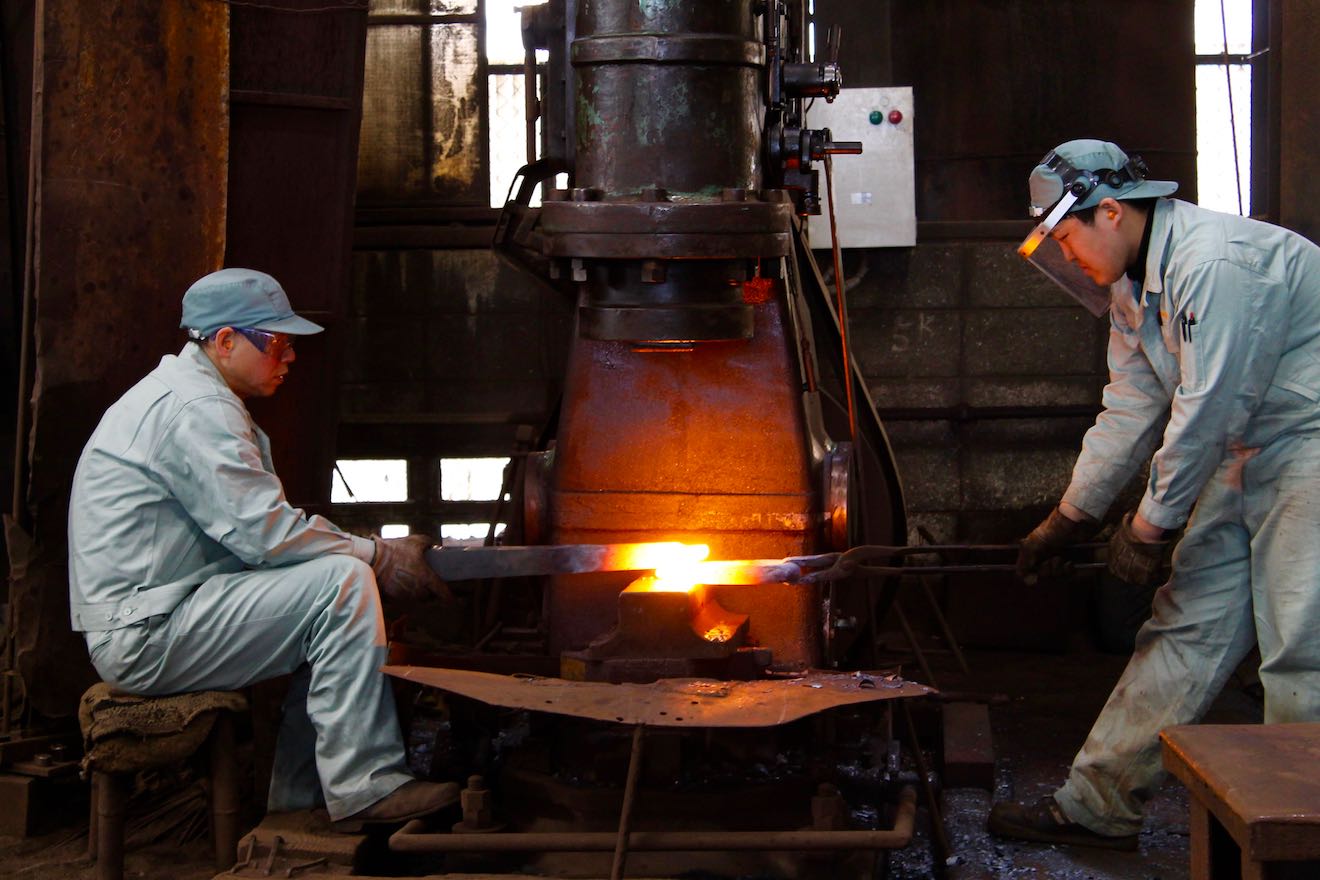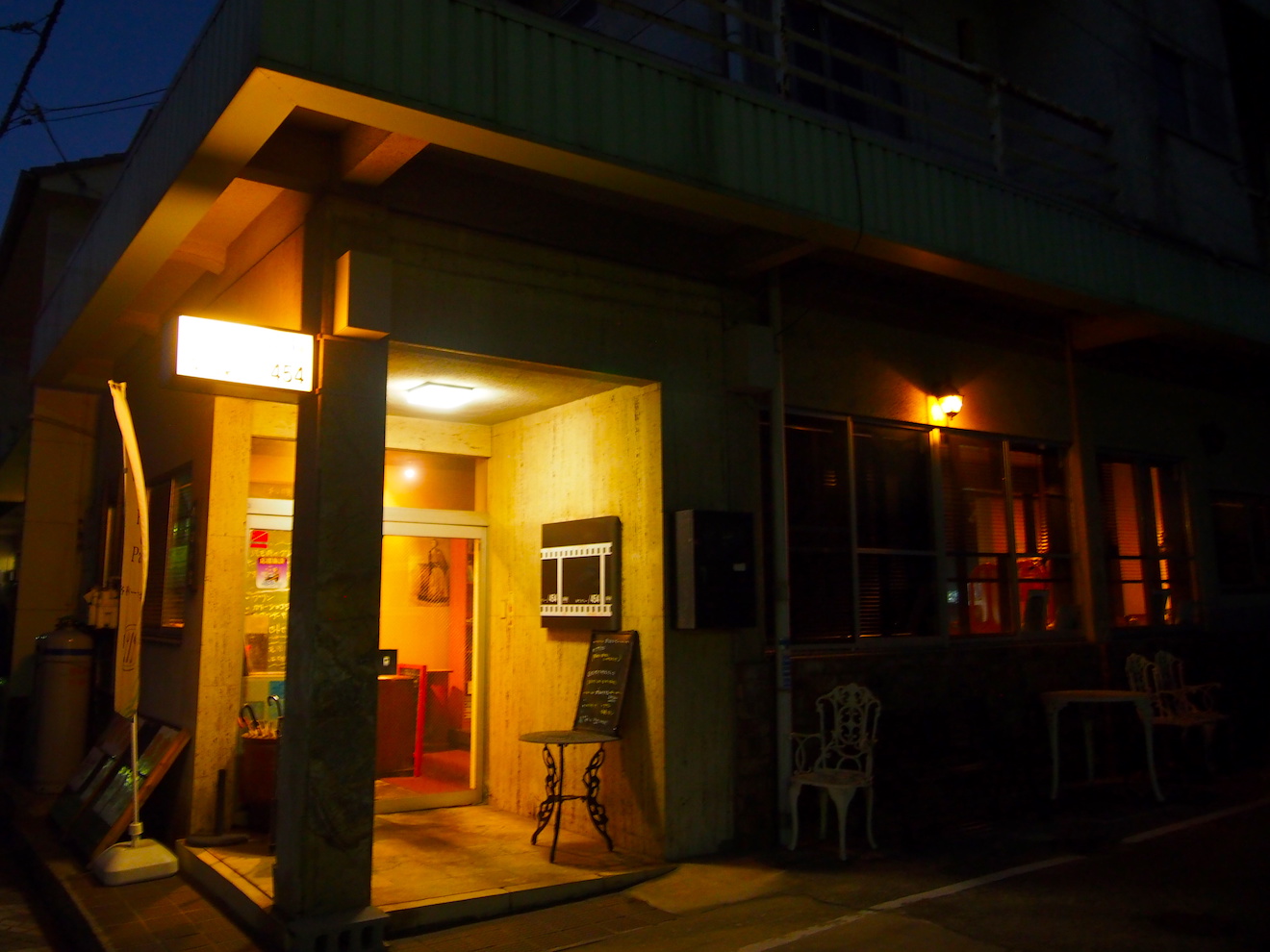As a Tokyo resident, I’ll routinely pass half a dozen convenience stores on the walk to my nearest train station: one Family Mart, then a Lawson, then another Family Mart, then a 7-11 for good measure. The convenience is undeniable, but passing this chain of chain stores, I’m hard-pressed to find a neighborhood market in a metropolis like Tokyo with as much character or history as Hiraishoten.
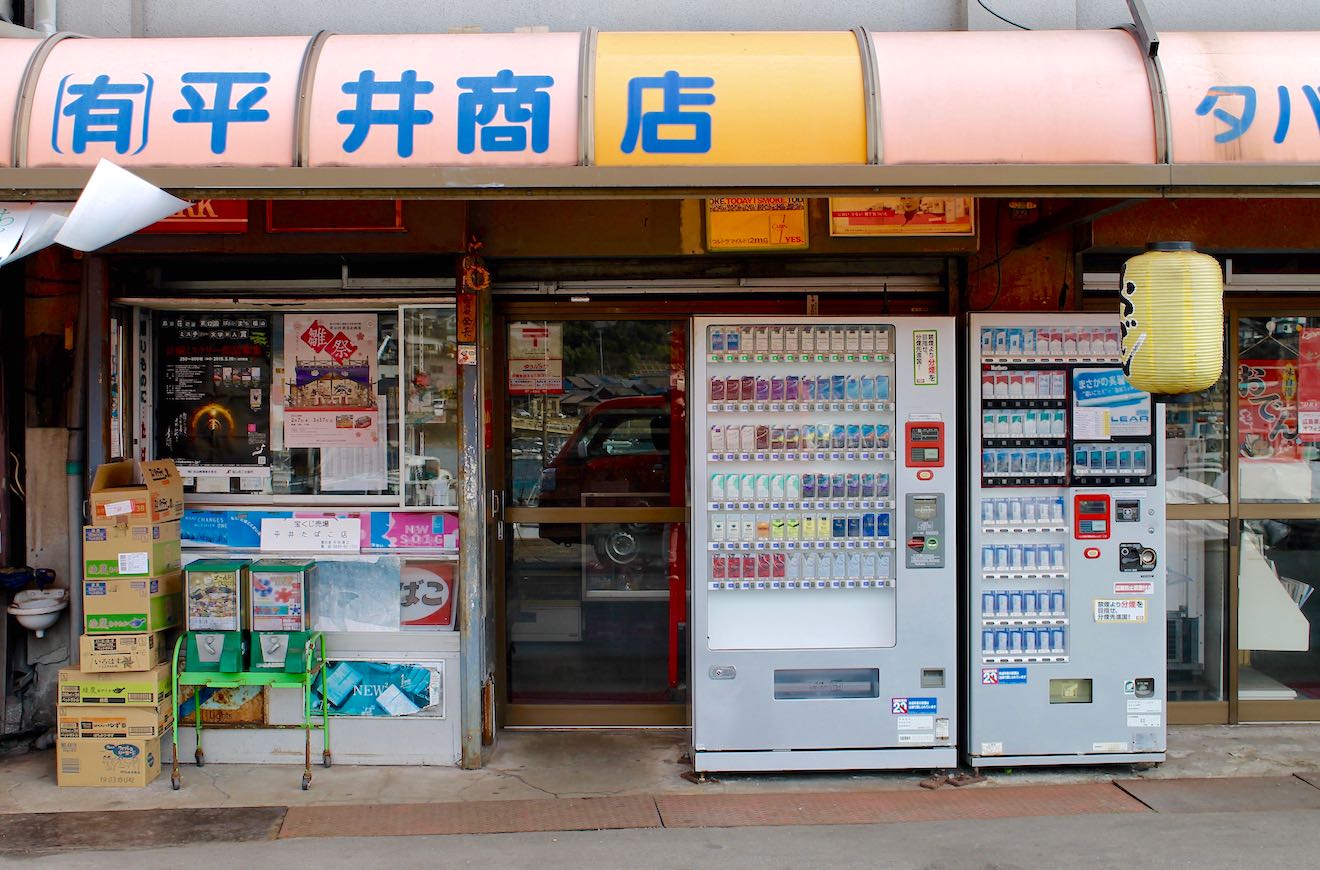
A Retro Relic in Tomonoura’s Port District
Located on the water of Tomonoura harbor, the small shop is on the opposite short of the port town’s 11-meter-tall Joyato Lighthouse, which dates back to the Edo Period (1603-1867). The store has been feeding fishermen and supplying household essentials to local residents for decades. A yellow lantern hangs outside the store, swinging in the sea breeze and announcing that oden (a soy-based stew) is hot and ready for consumption.
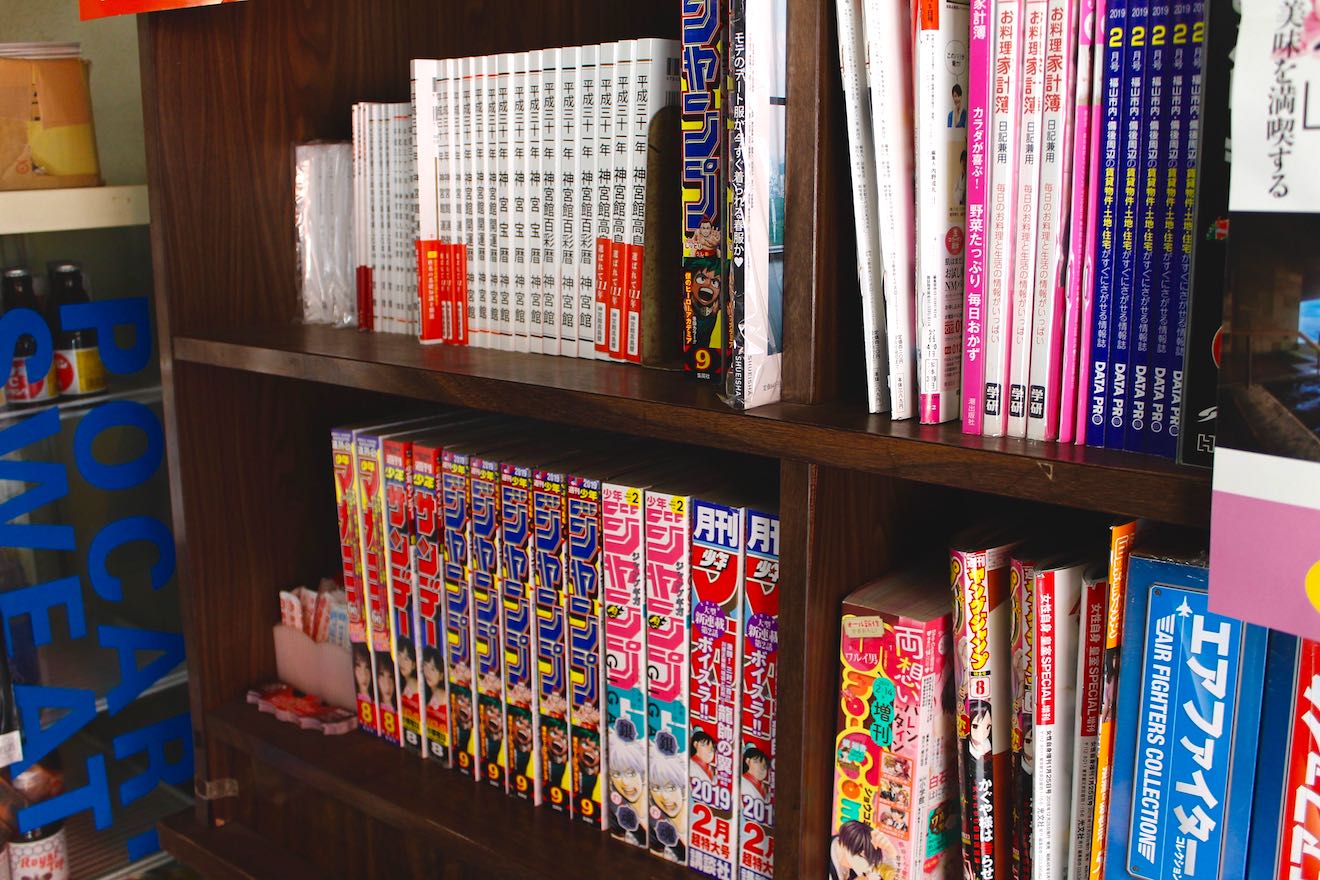
After peeking my head in, I was greeted with “Irasshaimase!” from the septuagenarian owner and operator. During my visit on an afternoon in late January, store shelves were stocked with newspapers, detergent, fishing tackle, heating packs and otoshidama bukuro (envelopes for New Year’s gift giving). I immediately spotted Shonen Jump, a weekly manga magazine favored by Japanese boys across the country since the 1960s, sticking out from one of the bookcases. The glass displays at the center of the store housed snacks and sweets known as dagashi, cheap fare equivalent to American penny candy.
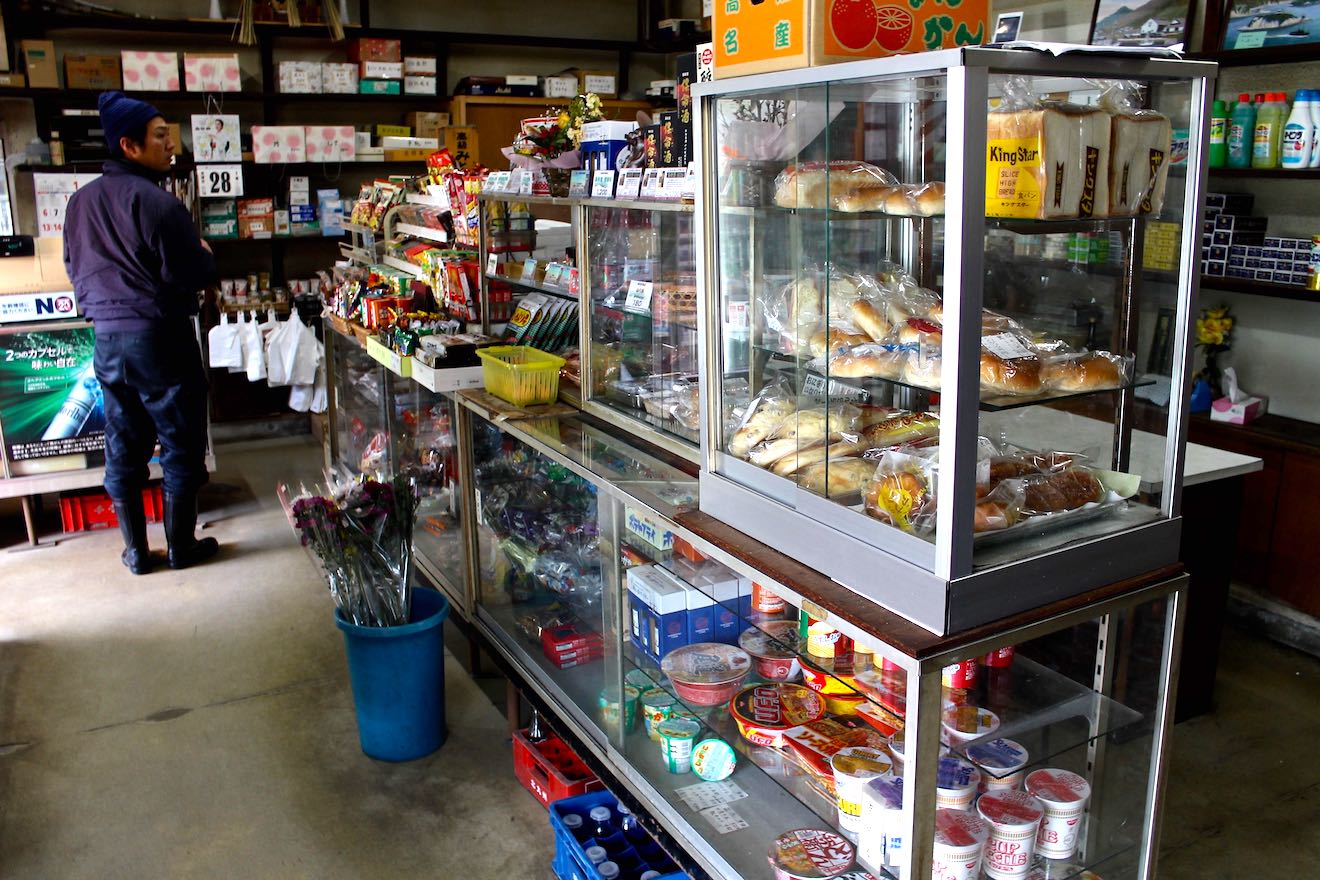
There is an unmistakable retro feel to Hiraishoten, evoking the Showa-era and a time before the aging population issue hit Japan’s rural communities. It’s hard not to imagine a group of boys racing their bikes down to the pier, stopping at Hiraishoten to pick up Milky hard candies or umaibo (literally “delicious sticks”) with their pocket change.
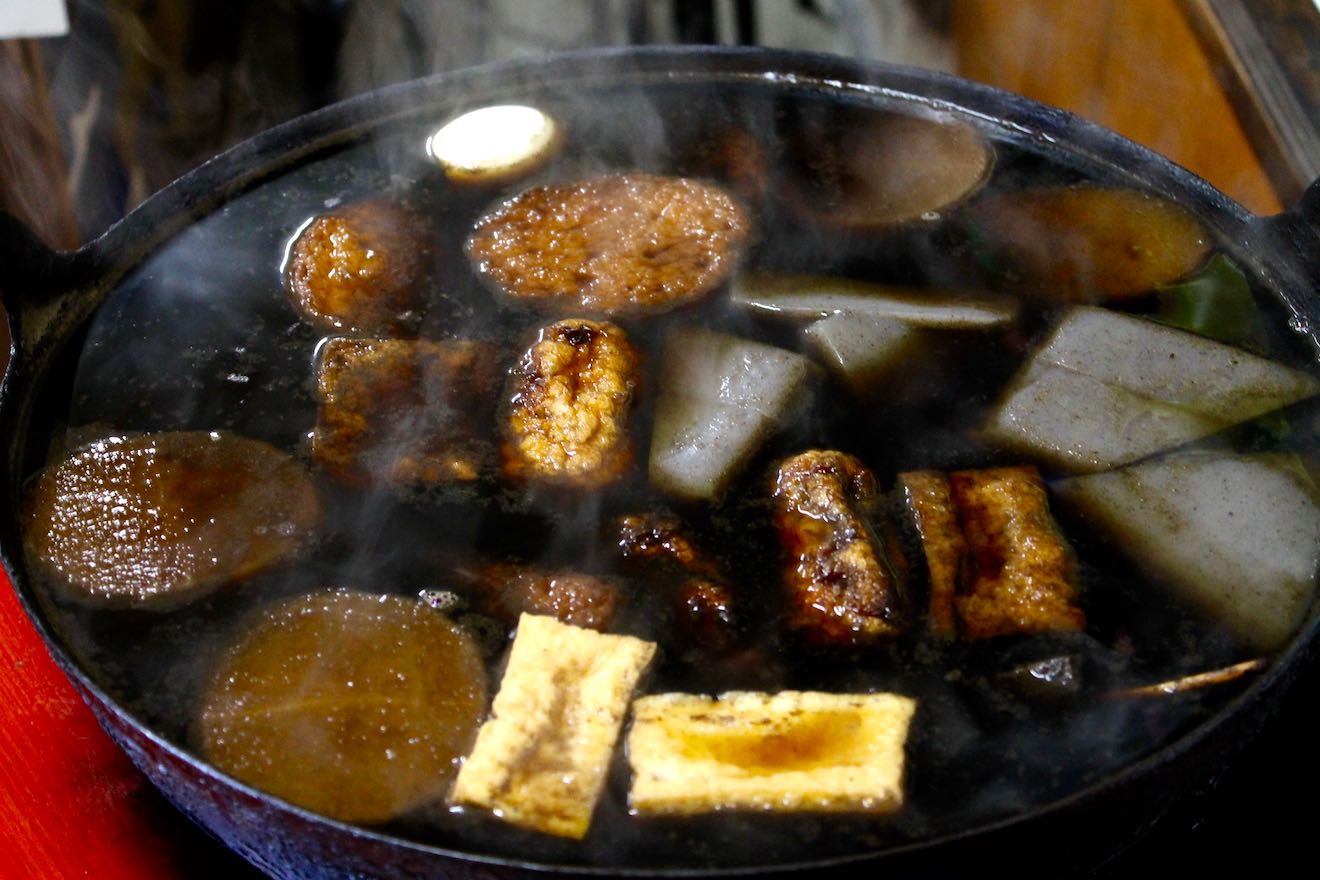
Hiraishoten’s Homecooked One-Pot Stew, Oden
After exploring the aisles, my attention turned to steam rising from a black pot in the corner. Unlike the metallic tubs commonly found in convenience stores, Hiraishoten’s oden was brewing in an iron cauldron. Oden is a one-pot dish, in which an assortment of ingredients (e.g. chikuwa fishcakes, boiled eggs, daikon radish, atsuage (thick fried tofu), konjac) are stewed in a soy-based broth.
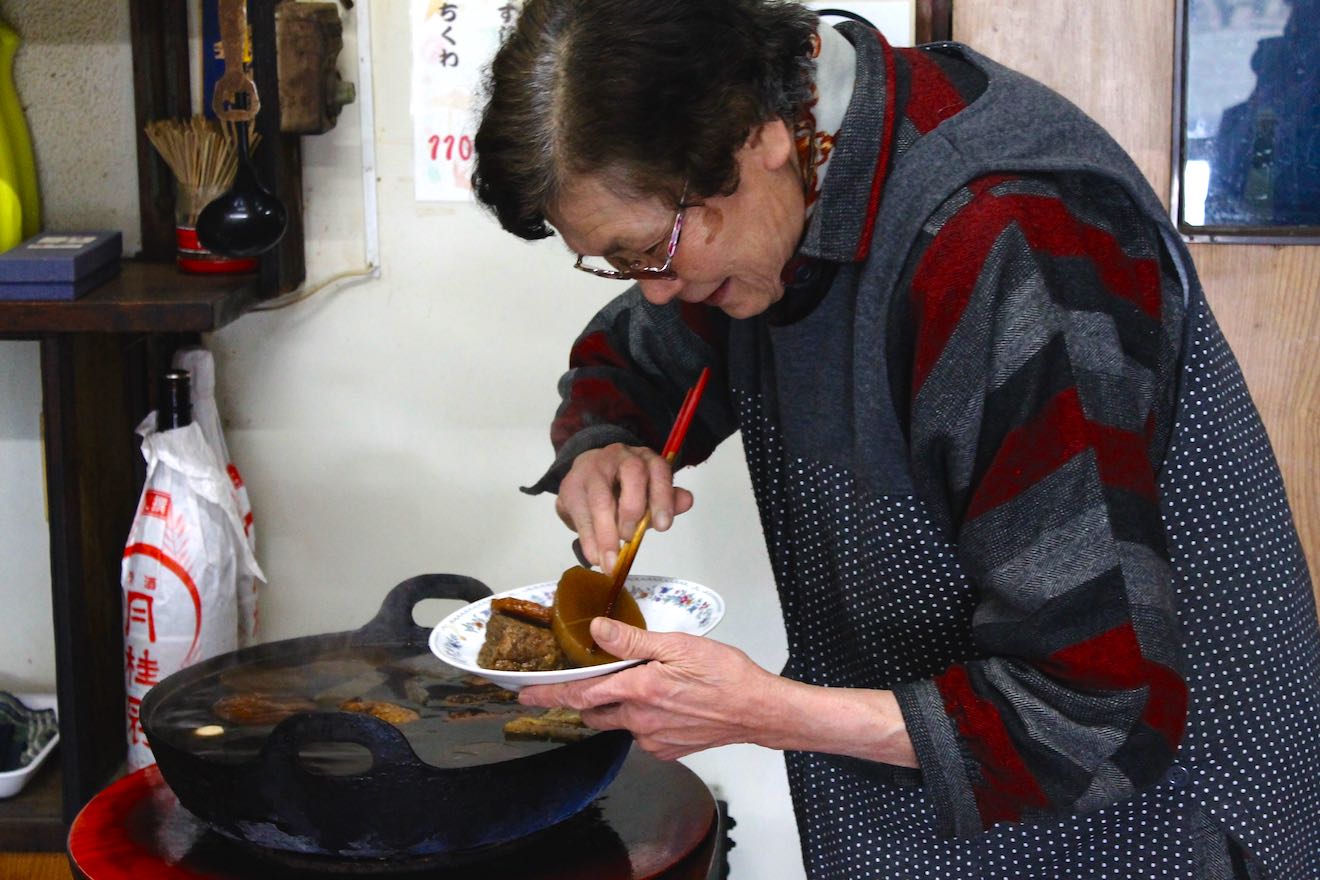
Perfect for a cold January day, I asked the owner for a sample platter. She lifted the cauldron lid revealing a steaming broth far richer and darker than your average 7-11 variety. I enjoyed the flavorful homemade oden over casual conversation with the owner. Daikon is a favorite of mine when sitting down to oden (it soaks up all the flavorful dashi) and Hiraishoten’s radish cake did not disappoint.
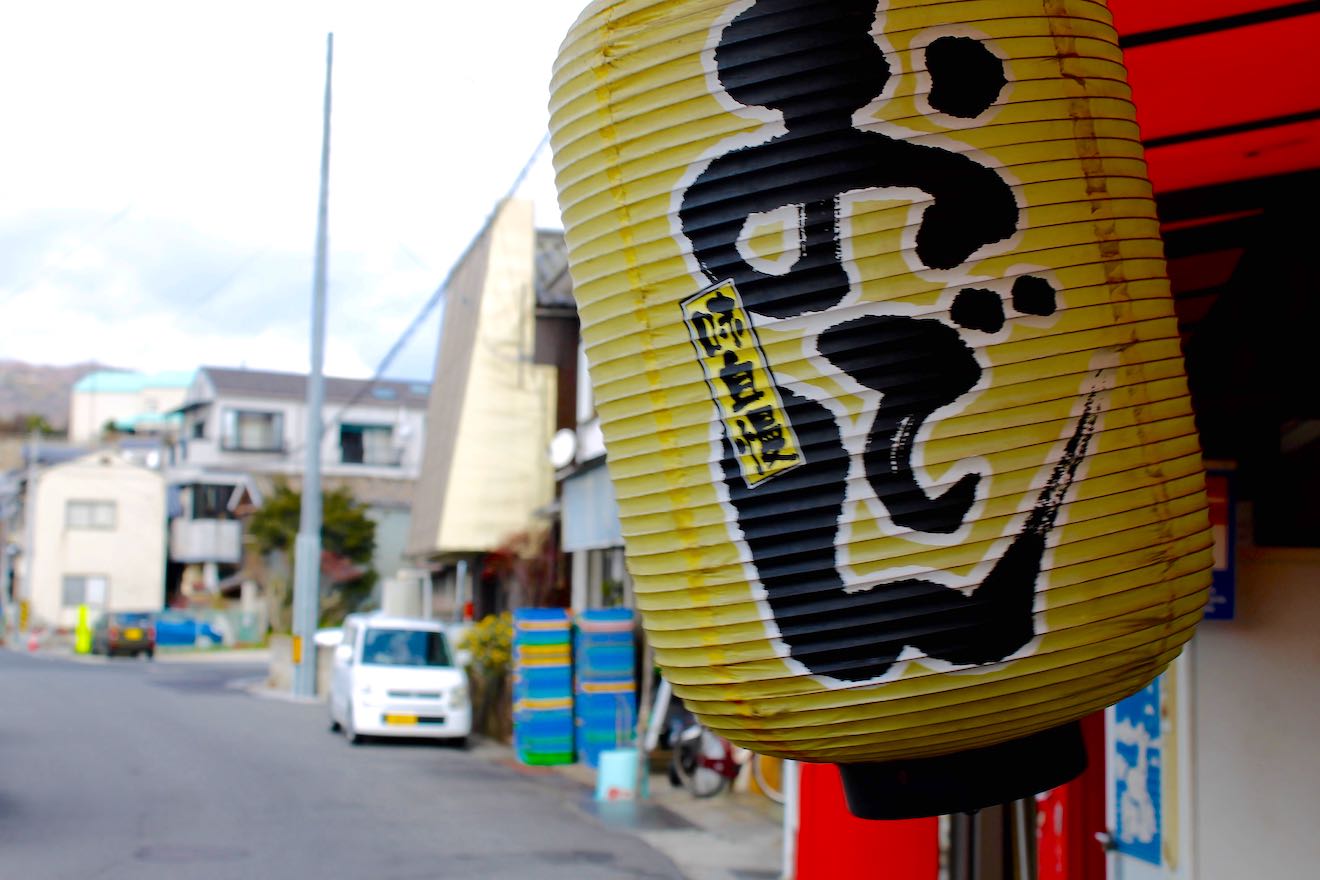
I left the market satiated and with a pocket still full of change—the owner of the shop had refused payment, instead taking my compliments on the oden and wishing me an enjoyable stay in town. I decided to stroll around the harbor district, heading towards the pier.
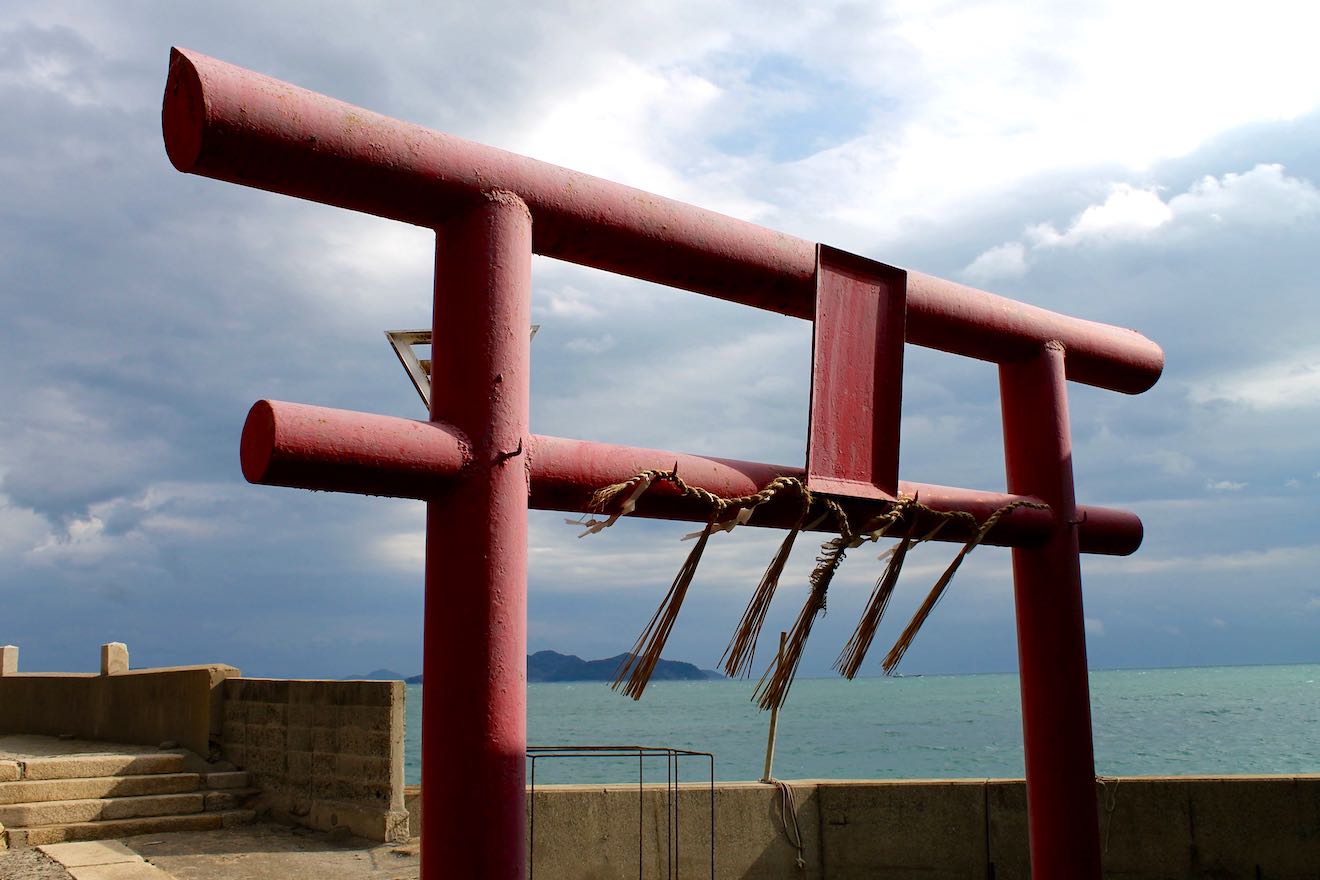
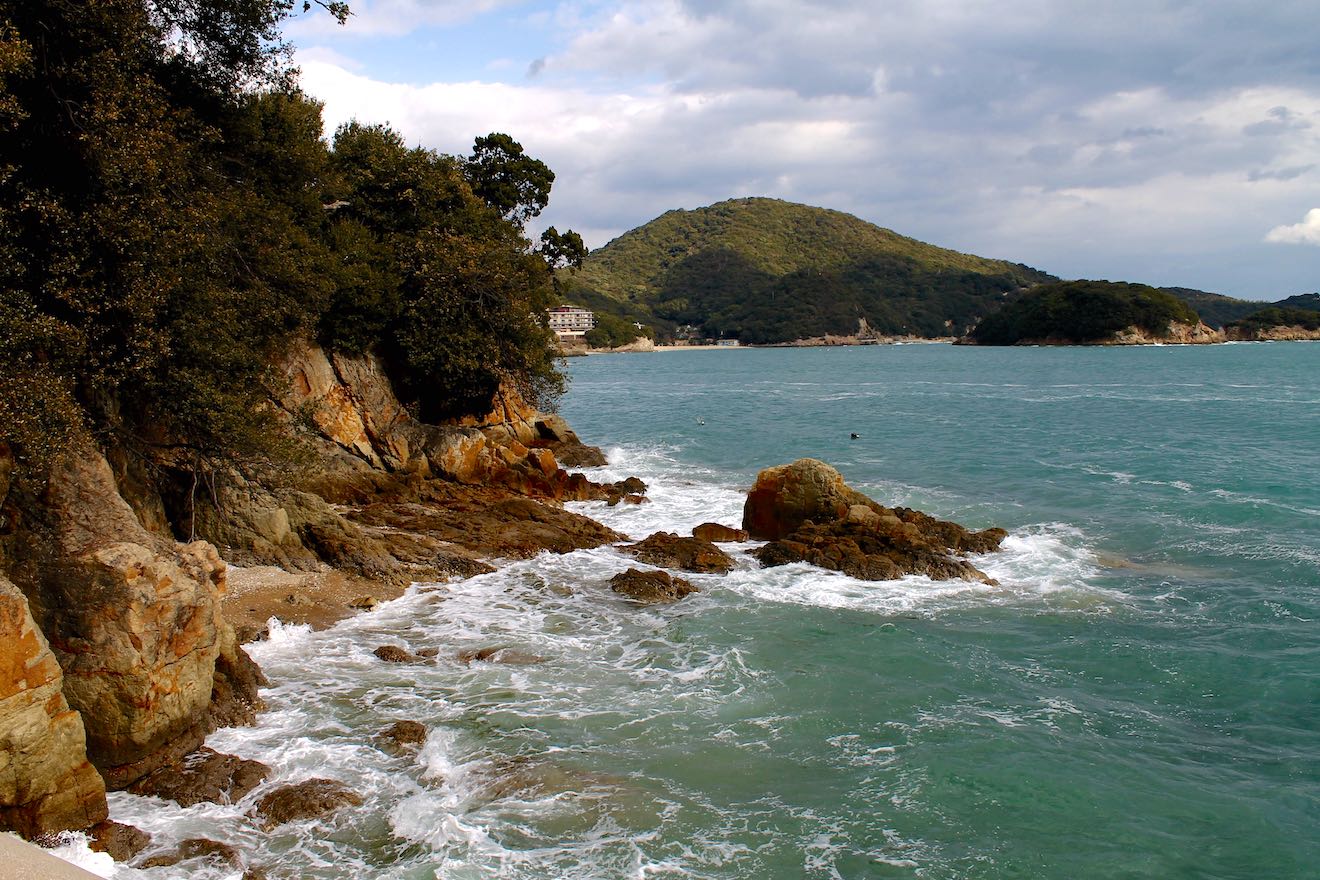
When I arrived, a small torii gate caught my eye, the red paint no doubt worn down by salty water and winds. Tucked away was Anaha Shrine, which overlooks the Seto Inland Sea and Tomonoura’s rocky coast. I watched boats navigate out of the harbor and listened to water lap against the sea wall. It was a beautiful view, but if I’m being honest my mind was still thinking about that soy-soaked daikon.
Hiraishoten
Address/ 781 Tomo, Tomo-cho, Fukuyama-shi, Hiroshima
Tel/ +81-84-982-1755
Open/ 7:00 — 19:00 Daily
Parking/ No parking
Writer name: Andrew Deck
